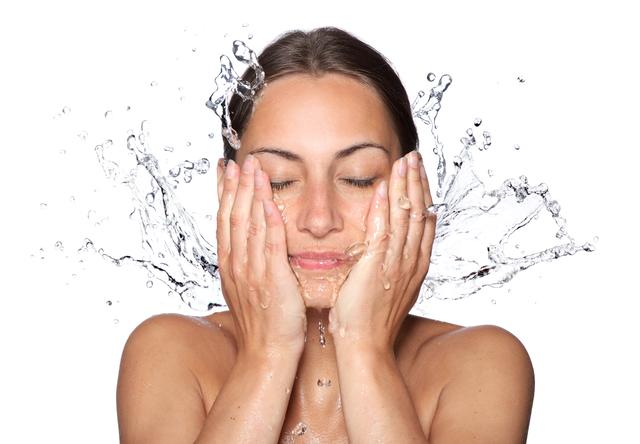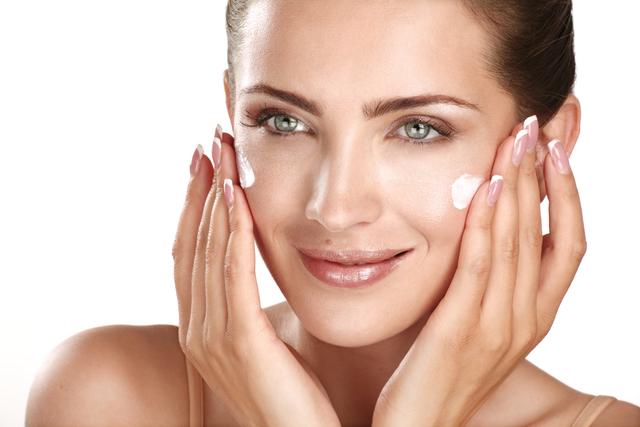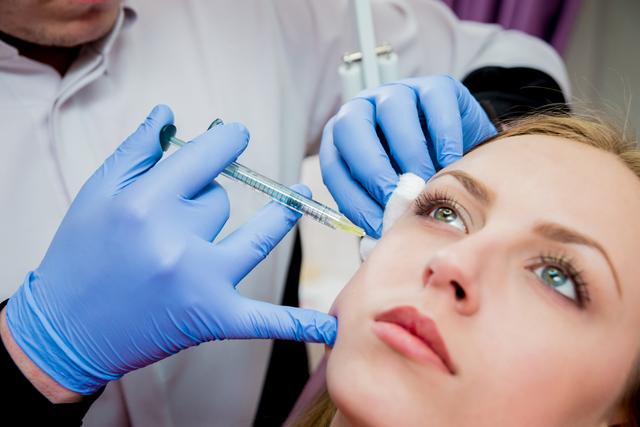
I write to you about the fact that the skin needs hydration every time I mention its proper care. We should moisturize it from an early age, even when it is still smooth and firm. We are talking about the fact that the skin needs moisturizing in the summer when it is exposed to the sun's rays and air-conditioned indoor air, in autumn and winter when it is exposed to sudden temperature changes, and even in the spring when it should regenerate and recover after winter. Today on our blog about why moisturizing is so important for our skin.
Why do you need water?
Our body mostly consists of water, every part of it needs it, without it our life would not be possible. The skin contains as much as 20-30% of water, which is stored throughout the body. However, it is not evenly distributed, much more water is found in the deeper layers of the skin. It is thanks to it that its reconstruction processes take place correctly, the proper functioning of fibroblasts is maintained, and collagen and elastin fibers have the correct structure. If it is not enough, these functions will be disturbed, the skin will lose its firmness and elasticity, and aging processes will significantly accelerate.
Its protective layer will also be disturbed, so it will become susceptible to allergens, pathogens and external factors such as wind, frost and UV radiation. When the protective layer of the skin is not working properly, the water that its cells need is evaporating much faster, disrupting their functioning.

When does the water run out?
The amount of water in our body depends on many factors. Babies have the most water, later its amount gradually decreases. Therefore, with age, when it begins to decrease, our skin becomes less elastic, thin and prone to irritation. That is why we begin to notice the first signs of aging on it.
If our skin is not hydrated enough, it wrinkles, breaks, we feel unpleasant burning and itching.
We lose water every day during normal physiological activities, excrete it with urine and feces, we lose it with each of our breaths and through the surface of the skin.
It is said that about 2.5 - 3 liters of water are lost daily from our body. This amount, however, varies depending on our predispositions, the climate in which we live, lifestyle or diet.
Dryness of the skin also occurs when it comes in contact with irritating factors found e.g. in detergents and even in some cosmetics. Baths that are too long may also be unfavorable, which is why we like lounging out of the bathtub with warm water very much, we must remember that in this way we deprive our skin of a protective layer and expose it to intensive loss water.
How to care for proper skin hydration?
Of course, it is very important to replenish lost fluids, we should supply them to the body as much as they depleted. This amount varies, among others, depending on the weather, physical activity and health. So be sure to watch your body and remember that the usual feeling of thirst is already a sign of dehydration. Dehydration of the skin most often bothers us in autumn and winter, when our skin is exposed to frequent temperature changes, cool and sharp outdoor air, and dry and warm rooms. All this promotes rapid evaporation of water. That is why we should especially take care of its proper hydration and rebuilding of the damaged protective layer.
Appropriate care
When our skin loses moisture very quickly it then becomes unpleasantly tense, dry and rough. To improve her condition, we must ensure proper hydration and protection. Remember, however, that the creams used on cool autumn and cold winter days should be different from the ones we used in the summer. They must take care not only to moisturize the skin properly, but also to ensure that this moisture stays in it for as long as possible. They also include skin protection against wind and cold, so they should take care of its protective layer. This is why winter creams have a different consistency than those we use in the summer, to be able to do their job, they must be definitely denser.
What to look for in cosmetics?
Well-chosen cosmetics are the basis for proper care, so it's worth paying attention to their composition. To improve the condition of dry, dehydrated skin or to prevent excessive water loss, choose cosmetics in which you will find e.g.
- hyaluronic acid, which by binding water molecules, will ensure proper hydration of the skin;
- urea, which also moisturizes and has the ability to retain water in the epidermis and protects against excessive water evaporation beeswax or petroleum jelly;
- vegetable oils (jojoba, almond, borage, evening primrose, raspberry seed, avocado, sea buckthorn, shea butter or cocoa butter), which not only take care of the proper hydration and lubrication of the skin, but also help rebuild its protective barrier, they will provide a large dose of the most important vitamins and essential fatty acids. In addition, they also nourish the skin, and as strong antioxidants will fight free radicals. Vegetable oils also have anti-inflammatory and soothing effects and what is very important they do not clog pores and do not irritate delicate skin;
- aloe, chamomile or calendula extract, thanks to which we will reduce irritation, accelerate healing processes and help deal with inflammation more easily.

However, this is not the end, you also have to remember that the cosmetics you choose contain ingredients that will help supplement the skin's lipid structure, e.g. cholesterol, ceramides, polyunsaturated fatty acids and squalene.
It is also very important to ensure proper regulation of water and fat management, e.g. vitamin B7, A, E, and having soothing provitamin B5 will work very well in this role.
In winter, it is also worth strengthening the vessels exposed to constant temperature changes. Creams containing vitamin C, routine and chestnut, arnica or calendula extract are excellent here.
Help in the hands of a specialist
There is also the perfect time to use the opportunities offered by aesthetic medicine. At REVIVE CLINIC™, we have prepared for you a wide range of treatments, which, combining into proprietary programs, are tailored to your individual needs, so that the effects that we finally get are the best.
- If your problem is dry skin, you can use e.g. HydraFacial water microdermabrasion, thanks to it you not only significantly improve the condition of dry, hypoxic and tired skin, but you can also rejuvenate it, smooth it and even out the color. HydraFacial is a treatment for all skin types, even the most sensitive ones. Thanks to water microdermabrasion, your skin will be thoroughly cleansed and the use of active substances that under high pressure penetrate into the deep layers of the epidermis, will intensively moisturize, nourish, rejuvenate and refresh. The variety of active substances used during the treatment allows them to be individually selected for your skin problems, and the effects are visible immediately after it is performed and last for over 7 days.
- An immediate intensive help for dry tired skin is also an Intraceuticals Oxygen Infusion, which consists of injecting active ingredients in the form of a serum into the deep layers of the skin with pure hyperbaric oxygen. As a result, the active substances used during the treatment, acting at the cellular level, deeply moisturize and nourish the skin, reduce the appearance of wrinkles and improve the face contour. A specialist who will know your expectations and skin problems you are facing will decide what substances will be used during the procedure.
- For people whose skin needs solid hydration and nutrition, I also recommend Mesotherapy, i.e. injecting the skin with specially composed "cocktails" of vitamins, amino acids, microelements, hyaluronic acid and plant extracts.

Do not forget that even a non-invasive procedure requires consultation with a specialist. It is very important for the person who will perform it to know not only your expectations, but also be able to assess the condition of your skin and know your health so as to exclude all possible contraindications to the use of therapy.
Remember also that dry skin can be a symptom of many diseases, such as diabetes, hypothyroidism or hyperthyroidism, psoriasis or atopic dermatitis, and a thorough medical consultation is often the first step leading to the right diagnosis and treatment.
